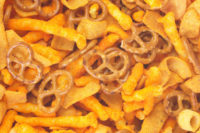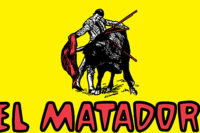Expand on Demand
Don Julio’s new state-of-the-art production line boosts its capacity to help the Utah-based company diversify and enter new markets.






Nate Fisher pretty much made up his mind two years ago that Don Julio Foods was going to move out of its 35,000-sq.-ft. facility in Clearfield, Utah.
During the previous years, the tortilla producer’s retail sales had been climbing at about 25% annually while the smaller base of foodservice volume had soared 50% a year as the company expanded throughout the Intermountain region, which includes Utah, Idaho, Wyoming, Montana, Nevada, parts of Arizona, Colorado and New Mexico.
To keep up with demand, the operation was running around the clock and sometimes, seven days a week, with the corn line cranking out 800 dozen tortillas an hour while two flour lines produced up to 2,800 dozen pieces an hour, depending on the size of the product.
In addition, the $12 million company was taking delivery of a $3 million line that would make up to 3,800 dozen flour tortillas an hour. Everything was ready to move when a wrench got thrown into the plan.
“Our landlord saw what we were doing and gave us too good of a deal to move now,” says Fisher, president and CEO of Don Julio Foods. “He was giving us concessions with some of the infrastructure and expenses, and it didn’t make economic sense to move. I thought, ‘we’re not in the real estate business. We’re in the manufacturing business’ so we took his offer.”
Founded in 1993 by his dad, Craig, Don Julio Foods initially sold tortillas co-packed by a producer out of California. As volume grew and freight costs rose, the Fishers bought production in-house.
Today, flour tortillas make up about half of the company’s sales, with the bulk of those products being the conventional
8- and 10-in. top-selling varieties. In addition to boosting capacity, the new tortilla line will help Don Julio roll out new products, enhance consistency and control labor, Fisher says.
“The biggest improvement is that the products are more consistent,” Fisher says. “The packaging area is also more automated. We have only one person in the packaging area, and it’s a lot more professional than it was before.”
Each week, the plant’s flour lines use about 160,000 lb. of flour, which is stored in a 90,000-lb. silo inside the plant. All ingredient batching is done in-house, Fisher says.
The new line features a spiral mixer that currently makes about six, 350-lb. batches an hour. The smaller batches provide fresher, more pliable and consistent flour tortillas.
From the mixer, Fisher notes, the dough is automatically elevated to the line’s hopper and passes through a 9-pocket piston divider into an intermediate proofer. From there, the dough balls glide down chutes to a 52-in. hot press before entering an 18-ft., three-pass oven, which is about 50% larger than the company’s other ovens that range around 12-ft. long.
After baking, the tortillas head into an 18-tier cooler to an automatic counter/stacker and a heat-sealed bagging system, which can handle about 36 packages per minute, before traveling through metal detection. Its 8-in. tortillas come in 10- and 24-count resealable packs while the 10-in. ones come in 8- and 30-count packs, the latter package for warehouse clubs. The company also makes 12-in. flour tortillas for the foodservice channel.
To enhance quality, operators simply punch in a product’s specifications prior to starting the run. The technologically advanced line then relies on three digital cameras located at the end of the oven, cooling conveyors and counter/stackers and show the operation in action on a 12-in. screen.
“If you want some additional [toast] spots or if it’s not browned right, the computer automatically looks at it and rejects the tortilla that is out of spec,” Fisher says.
Fisher estimates that the lines return in investment between six months and a year.
“We’re kind of forecasting two to three years to fill up capacity on the line,” he says.
In addition to geographic expansion, new products such as its uncooked tortillas are fueling sales, says Greg Bingham, vice president who assists Fisher in brand building and sales for the company’s Don Julio tortilla products and Clover Club and Don Julio snack business. After it was introduced two years ago, uncooked tortilla sales soared in the foodservice channel, where operators can bake them up hot and fresh like they do whey they fry uncooked corn tortilla chips on premise. The company also is introducing uncooked tortillas to the retail market.
On the snack side, he says, the company has added Clover Club popcorn, a French onion dip and salsa con queso. All snacks and dips are co-packed for the company.
“The snack side will be growing because of new customers and new products and not just because the snack side is growing,” Bingham notes. “It’s growing about 10% whereas the tortilla category is growing 20% to 25% for us. We’ll continue to grow in both categories, but on the snack side, there are some big hits we have yet to make, which will make our snack business grow.”
Editor’s Note: Check out our archives at
www.snackandbakery.com to read more about Don Julio Foods.
Looking for a reprint of this article?
From high-res PDFs to custom plaques, order your copy today!








